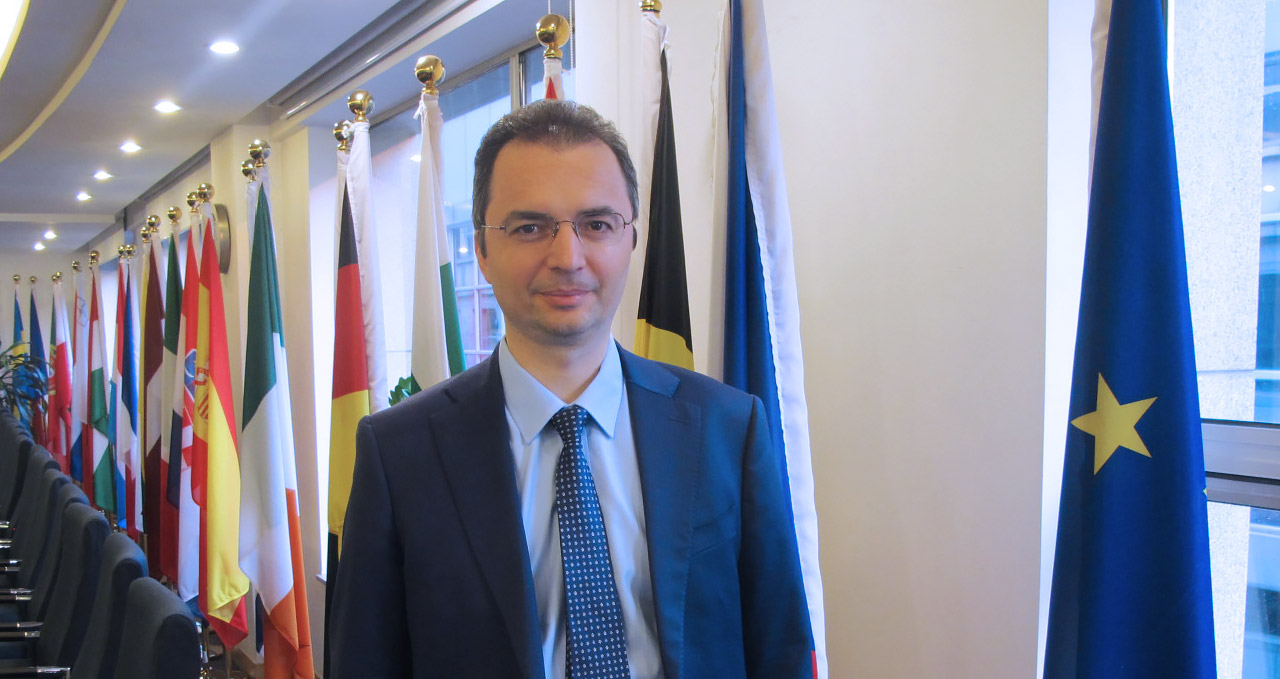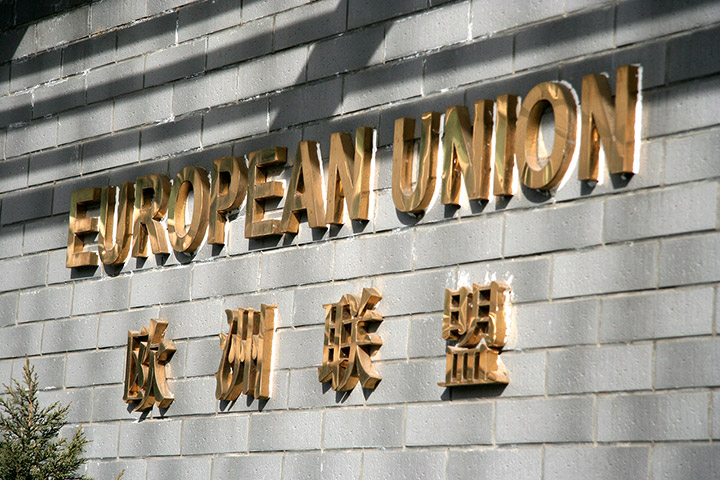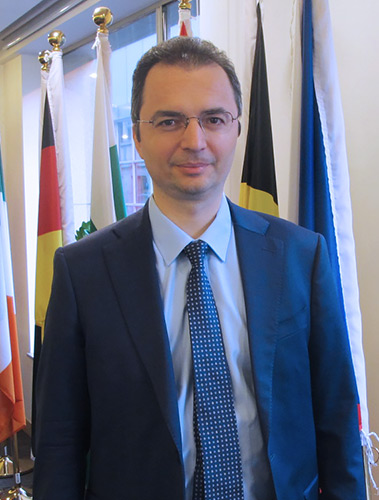Profile

date: 29/10/2018
See also: Inside this issue
Ionut, what exactly is your role? What does a typical day look like?
I have been working as DG FISMA's correspondent in the EU Delegation to China since September 2017. In this role, it is my job to keep EU headquarters informed about significant developments in Chinese financial legislation and the Chinese financial market. I also facilitate contact and meetings between EU visitors and Chinese authorities, on an ad-hoc basis or through regular bilateral dialogue. For this, I need to maintain a close cooperation with DG FISMA's counterparts in China.
A typical day usually consists of internal meetings in the EU Delegation, where colleagues update each other about any major developments in their area of expertise. There are also external meetings or events, either with the Chinese authorities or with representatives of EU Member States and the EU business community in China.
In addition, every week the EU Delegation sends a newsletter to EU headquarters, for which I need to contribute with a report on any relevant Chinese financial and economic developments.
What is special about the EU’s relationship with China?
Given the economic weight of both the EU and China, the two sides realise that they have an important responsibility: their performance will have a direct impact on the world economy and global financial stability. This is why the EU and China have worked at improving their relations, both at a bilateral level and within the framework of international economic and financial institutions.
However, considering the different regulatory systems, it is not always easy to ensure consistency between the two sides in terms of financial rules and supervisory practices. Still, the relevant EU and Chinese authorities are open for dialogue. Here in the EU Delegation, we hope that we can help build mutual trust and improve bilateral exchanges in the area of financial services, for instance regarding the assessment of whether Chinese rules can, under certain conditions, be considered as equivalent to EU rules in specific sectors.
High-level visits, such as Vice-President Valdis Dombrovskis' visit in September 2018 or Director-General Olivier Guersent's visit in June 2018, have contributed significantly to a mutual understanding and to highlighting the EU’s priorities in relation to China.
What are the latest trends or interesting issues in financial services in China?
About two years ago, China began a deleveraging campaign aimed at reducing the level of debt in the economy, which rose from about 140% of GDP in 2008 to more than 250% in 2017, with a strong increase in corporate debt. The country is now trying to find the right balance between this deleveraging campaign, including the de-risking of its financial sector (e.g. through the 2018 asset management reform aimed at tackling shadow banking), and the need to contain the slowing growth by supportive economic policies. Such policies concern monetary easing, reduction of the reserve requirement ratio for banks, encouragement of bank lending and local governments' bond issuance for infrastructure financing etc. Striking this balance is complicated even more by the ongoing trade tensions with the US.
Another important priority for China is the protection of the environment. The country is very active in promoting its green finance agenda and has already become one of the largest green bond markets worldwide.
No less impressive are developments in FinTech. Chinese companies are very advanced when it comes to mobile payments, online consumer finance, big data, AI etc. This is thanks to good IT infrastructure, a large user base and the widespread use of e-commerce platforms and social media.
What is it like living in Beijing?
I had already visited Beijing before moving here last year and was impressed by its dynamism and rapid rhythm of change. Being at the centre of China – or the "Middle Kingdom" – there are many opportunities to learn about Chinese history and culture. At the same time, I am trying to make some progress learning the Chinese language. This is very useful for work, but it also helps me get a better understanding of the Chinese mentality. Gathering all this knowledge of China could also be very helpful later on, after I return to Europe.


